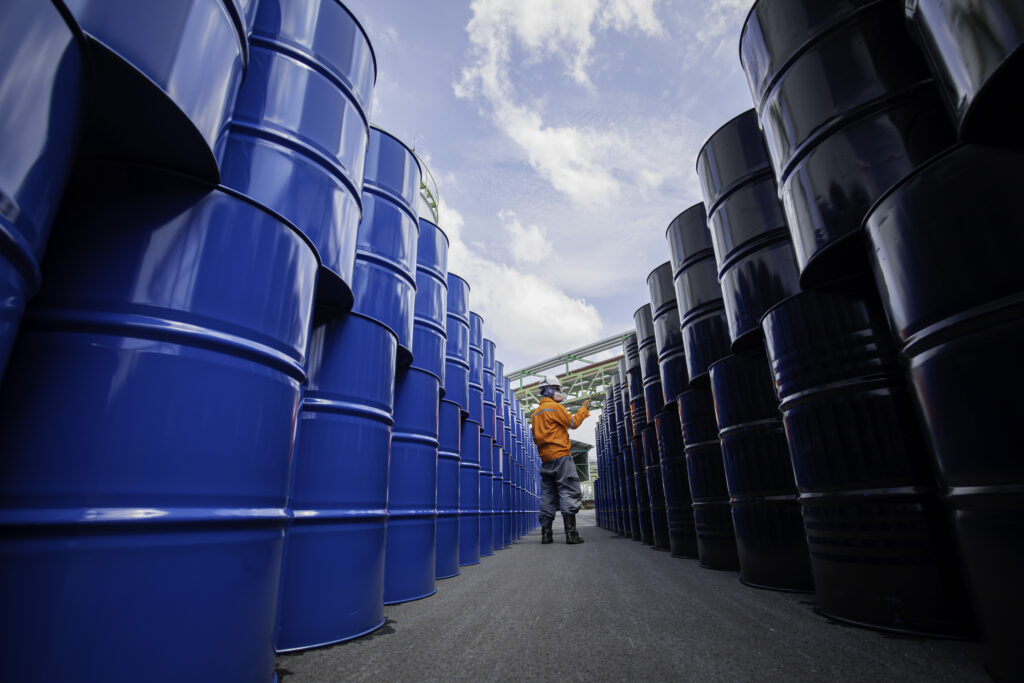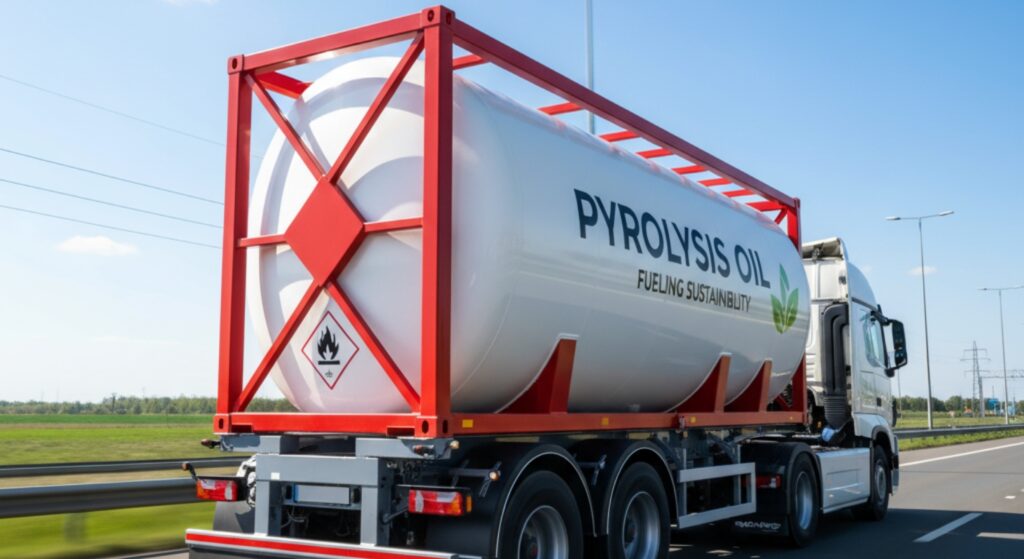Industrial Fuel Substitution
Furnace and Boiler Fuel
Cement and Steel Plants
Power Generation Units
Marine and Heavy-Duty Engines
Refining and Upgrading Feedstock
Chemical and Petrochemical Industries
Blending in Heating Oils and Diesel Alternatives
Ulei de piroliză din anvelope (TPO)
- Home
- Ulei de piroliză din anvelope (TPO)

A Cleaner, Cost-Effective Alternative to Traditional Fuels
At Gravita, we are committed to pioneering sustainable solutions that contribute to a circular economy and reduce environmental impact. Our Tyre Derived Fuel (TDF) or Tyre Pyrolysis Oil exemplifies this commitment by transforming end-of-life Tyres into a valuable, eco-friendly energy source for industrial applications.
What is Tyre Derived Fuel?
Tyre Derived Fuel or Tyre Pyrolysis Oil is produced by processing scrap Tyres into a high-energy fuel alternative that can be used in cement kilns, paper mills, steel plants, power generation and other industrial boilers. By diverting millions of Tyres from landfills annually, TDF not only supports waste reduction but also offers a cleaner, cost-effective substitute for traditional fossil fuels such as coal and petroleum coke.
Why Gravita’s Tyre Derived Fuel?
Sustainability at Core: Our TDF solutions are crafted with a focus on reducing greenhouse gas emissions and conserving natural resources, aligning with Gravita’s mission to foster sustainable growth and eco-friendly innovation.
Superior Energy Efficiency: TDF delivers higher calorific value compared to conventional fuels, enabling industries to optimize energy consumption while lowering operational costs.
Customizable Fuel Specifications: We tailor TDF products to meet specific industrial requirements, ensuring seamless integration with existing fuel systems.


Environmental Benefits: TDF combustion results in lower nitrogen oxide emissions, minimal ash residue, and no mercury content, supporting cleaner industrial processes.
Circular Economy Contribution: By converting scrap Tyres into energy, Gravita advances the principles of recycling and resource recovery, reinforcing our role as a leader in global sustainable recycling.
How TDF Compares to Conventional Fuels
Feature | Tyre-Derived Fuel | Coal | Natural Gas | Petroleum Coke |
Low nitrogen oxide emissions | Yes | No | No | No |
Minimal ash residue | Yes | No | No | No |
No harmful leachate | Yes | No | No | No |
Mercury-free | Yes | No | No | No |
Consistent thermal output | Yes | No | No | No |
Customizable fuel size | Yes | No | No | No |
Diverts Tyres from landfills | Yes | No | No | No |
Cost-effective | Yes | No | No | No |
Send Your Inquiry
Whether you’re interested in our products, services, or a custom quote — share your details and we’ll respond promptly to assist you.
Connect with our team today
FAQ's
It is a clean, high-energy fuel obtained from recycled tyres, offering industries an eco-friendly alternative to coal and petroleum-based fuels.
TDF provides higher calorific value, low emissions, and no mercury content, making it safer and more sustainable for industrial use.
Yes, we can tailor parameters like viscosity, density, and calorific value to meet specific industrial requirements.
It is widely used across industries that require efficient and cost-effective fuel alternatives. Major users include cement plants, steel industries, boiler and furnace operators, power generation units, and heavy manufacturing facilities. It is also utilized as a feedstock in refineries and the petrochemical sector for further processing into high-value fuels and chemicals.
Yes, thanks to its high thermal output and lower handling costs, TDF provides a cost-effective fuel solution.
Absolutely. We follow international safety standards for storage and shipment to ensure safe, compliant handling.
